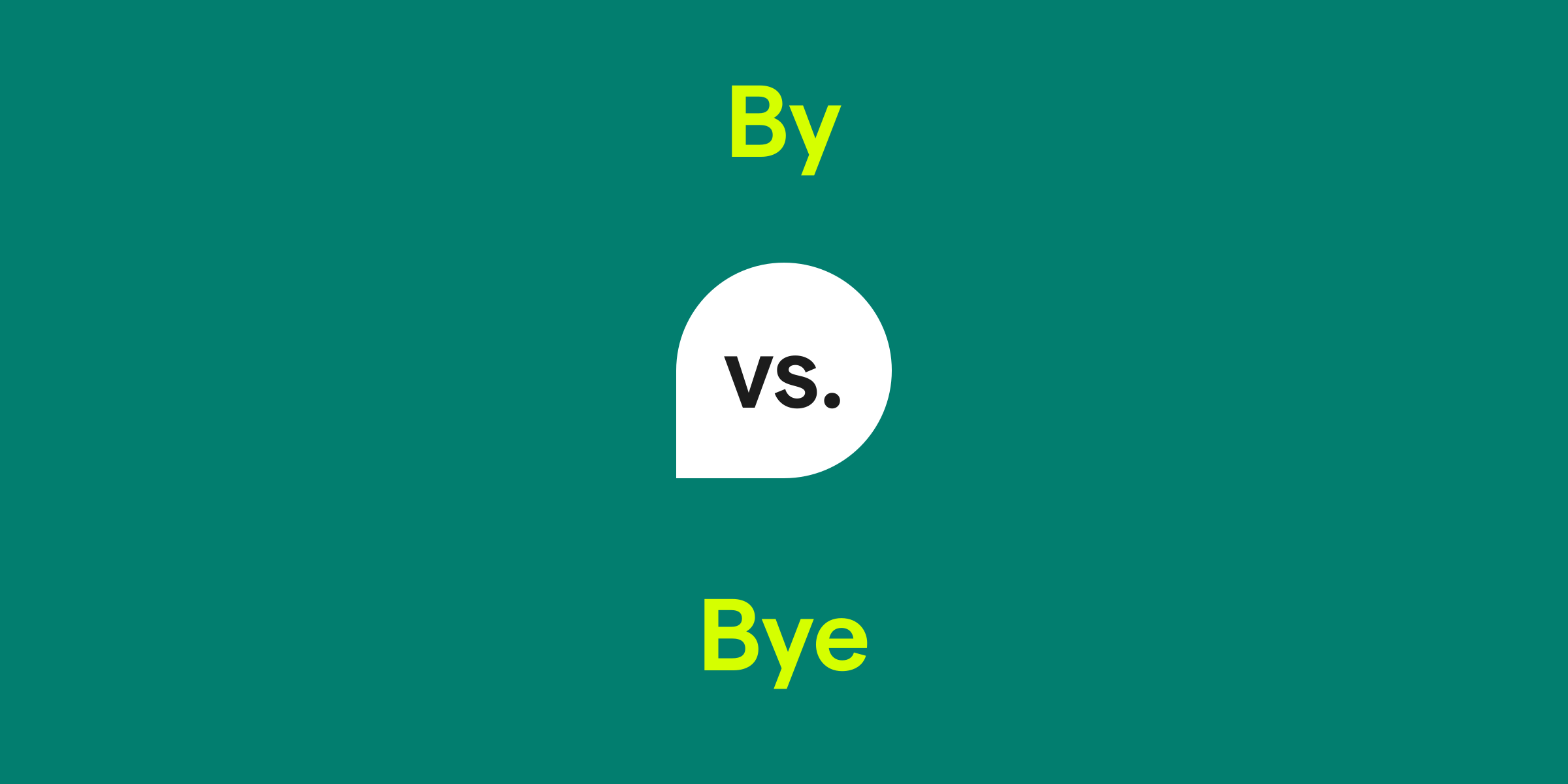By vs. Bye: What's the Difference?
The words by and bye may sound the same, but they have entirely different meanings and usages. By is generally used as a preposition or adverb, indicating the proximity, means, or agent responsible for an action. 'Bye,' on the other hand, is commonly used as an informal way to express farewell or as a noun referring to a pass or free progression in a sports tournament.

How do you use the word by in a sentence?
The word by is often employed when discussing proximity or location, specifying how something is accomplished, or identifying who performed a particular action. Using by allows readers or listeners to understand the method or agent behind something in a clear and concise manner.
Examples of by in a sentence
- The cake was baked by Jessica for the office party.
- She stopped by my desk to deliver the message.
- I prefer to travel by train as it is more comfortable.
How do you use the word bye in a sentence?
The term bye is commonly used in informal conversations as a short way to say goodbye. Additionally, it has a specific application in sports, referring to a situation where a player or team advances to the next round of a competition without having to play.
Examples of bye in a sentence
- See you tomorrow, say bye to your mom for me!
- The top-seeded team received a bye in the first round of the playoffs.
- Alright, it's getting late, so I've got to say bye now.
By and bye definition, parts of speech, and pronunciation
By definition:
As a preposition, by means 'close to' or 'next to.' It is also used to show the means through which something is done. As an adverb, by can mean 'past' as in 'to go by.'
By parts of speech:
By pronunciation:
Phonetically, 'by' is pronounced as /baɪ/.
Bye definition:
Bye is a short form of 'goodbye,' used to express parting. In sports, it denotes an absence or exemption from playing a round.
Bye parts of speech:
Bye pronunciation:
Phonetically, 'bye' is pronounced identically to 'by': /baɪ/.
As a preposition, by means 'close to' or 'next to.' It is also used to show the means through which something is done. As an adverb, by can mean 'past' as in 'to go by.'
By parts of speech:
- As a preposition: The park by the river is peaceful and quiet.
- As an adverb: When I called your name, you just walked by without noticing.
By pronunciation:
Phonetically, 'by' is pronounced as /baɪ/.
Bye definition:
Bye is a short form of 'goodbye,' used to express parting. In sports, it denotes an absence or exemption from playing a round.
Bye parts of speech:
- As an interjection: Bye, I'll see you next week!
- As a noun: Our team had a bye during the first week of the tournament.
Bye pronunciation:
Phonetically, 'bye' is pronounced identically to 'by': /baɪ/.
By vs. bye in a nutshell
In essence, by and bye serve different functions in English. By is versatile, operating as a preposition or adverb to talk about proximity, means, or agents of action. 'Bye,' in contrast, is an informal farewell or a sports term referring to a skipped match. Despite their identical pronunciation, knowing how to use these words correctly is crucial for clear communication.
Get AI Writing Assistance Wherever You Type
Make sure your vocabulary is on point and every punctuation mark is in the right place, no matter where you’re working. Grammarly works across more than 500,000 websites and apps so you can improve your writing without copying, pasting, or breaking focused.

More Commonly Confused Words
Interest piqued? Pore (not pour) over other commonly confused words to help your writing reach peak (not peek) performance.